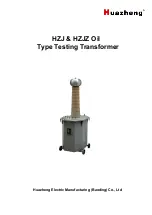
9
may be using equipment that is
sensitive to external RF energy.
Turn your radio off when on board
aircraft when instructed to do so.
Any use of the radio must be in
accordance with airline regula-
tions or crew instructions.
WARNING
Potentially Explosive
Atmospheres
Turn your radio off when in any
area with a potentially explosive
atmosphere, unless it is a type es-
pecially qualified for such use (for
example, FMRC Approved).
Sparks in such areas could cause
an explosion or fire resulting in
bodily injury or even death.
Do not replace or charge batteries
in a hazardous atmosphere. Con-
tact sparking may occur while in-
stalling or removing batteries and
cause an explosion.
Areas with potentially explosive
atmospheres are often, but not al-
ways, clearly marked. They in-
clude fueling areas such as below
deck on boats, fuel or chemical
transfer or storage facilities, areas
where the air contains chemicals
or particles such as grain, dust, or
metal powders, and any other
area where you would normally
be advised to turn off your vehi-
cle’s engine.
!
Blasting Caps and Areas
To avoid possible interference
with blasting operations, turn
your radio off near electrical
blasting caps or in a ‘blasting ar-
ea’ or in areas posted “Turn Off
Two-Way Radio.” Obey all signs
and instructions.
For Vehicles With an Air Bag
An air bag inflates with great
force. Do not place objects, in-
cluding portable or mobile two-
way radios, in the area over the
air bag or in the air bag deploy-
ment area. If improperly installed
or placed wireless equipment is
in the air bag deployment area
and the air bag inflates, serious
injury could result.
19-1217.fm Page 9 Tuesday, August 3, 1999 1:18 PM










































